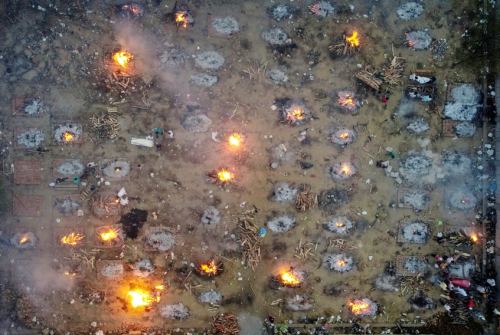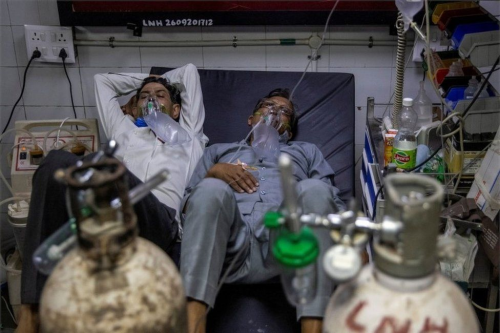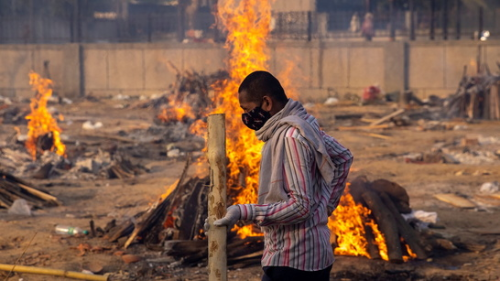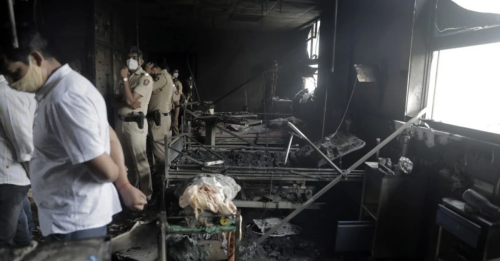The Significance Of Plot Without Conflict
The significance of plot without conflict
In the West, plot is commonly thought to revolve around conflict: a confrontation between two or more elements, in which one ultimately dominates the other. The standard three- and five-act plot structures–which permeate Western media–have conflict written into their very foundations. A “problem” appears near the end of the first act; and, in the second act, the conflict generated by this problem takes center stage. Conflict is used to create reader involvement even by many post-modern writers, whose work otherwise defies traditional structure.
The necessity of conflict is preached as a kind of dogma by contemporary writers’ workshops and Internet “guides” to writing. A plot without conflict is considered dull; some even go so far as to call it impossible. This has influenced not only fiction, but writing in general–arguably even philosophy. Yet, is there any truth to this belief? Does plot necessarily hinge on conflict? No. Such claims are a product of the West’s insularity. For countless centuries, Chinese and Japanese writers have used a plot structure that does not have conflict “built in”, so to speak. Rather, it relies on exposition and contrast to generate interest. This structure is known as kishōtenketsu.
Seguir leyendo
-
 savageontheside liked this · 9 months ago
savageontheside liked this · 9 months ago -
 lavalerebloguea reblogged this · 9 months ago
lavalerebloguea reblogged this · 9 months ago -
 allyoume liked this · 9 months ago
allyoume liked this · 9 months ago -
 rattuniversitty liked this · 9 months ago
rattuniversitty liked this · 9 months ago -
 viyatrix-reloaded reblogged this · 9 months ago
viyatrix-reloaded reblogged this · 9 months ago -
 viyatrix liked this · 9 months ago
viyatrix liked this · 9 months ago -
 just-burning-out liked this · 9 months ago
just-burning-out liked this · 9 months ago -
 takemyrevolutions reblogged this · 9 months ago
takemyrevolutions reblogged this · 9 months ago -
 takemyrevolutions liked this · 9 months ago
takemyrevolutions liked this · 9 months ago -
 aktinopterygia liked this · 9 months ago
aktinopterygia liked this · 9 months ago -
 dicelady20 liked this · 9 months ago
dicelady20 liked this · 9 months ago -
 yourewritingorelse reblogged this · 9 months ago
yourewritingorelse reblogged this · 9 months ago -
 noreturnz liked this · 9 months ago
noreturnz liked this · 9 months ago -
 stitchpunkdsol liked this · 9 months ago
stitchpunkdsol liked this · 9 months ago -
 arnim liked this · 9 months ago
arnim liked this · 9 months ago -
 artistatheart7-blog liked this · 9 months ago
artistatheart7-blog liked this · 9 months ago -
 rabbit-with-a-grapefruit-spoon liked this · 9 months ago
rabbit-with-a-grapefruit-spoon liked this · 9 months ago -
 sheepheadfred reblogged this · 9 months ago
sheepheadfred reblogged this · 9 months ago -
 mondocool liked this · 10 months ago
mondocool liked this · 10 months ago -
 pansexualflowr reblogged this · 10 months ago
pansexualflowr reblogged this · 10 months ago -
 isadora-greenhall liked this · 10 months ago
isadora-greenhall liked this · 10 months ago -
 ceramiccuriousity liked this · 10 months ago
ceramiccuriousity liked this · 10 months ago -
 odd-kid-42 reblogged this · 10 months ago
odd-kid-42 reblogged this · 10 months ago -
 spring-m liked this · 10 months ago
spring-m liked this · 10 months ago -
 ifirestone liked this · 10 months ago
ifirestone liked this · 10 months ago -
 verita-raizels-collections reblogged this · 10 months ago
verita-raizels-collections reblogged this · 10 months ago -
 sleepybutalrightiguess liked this · 10 months ago
sleepybutalrightiguess liked this · 10 months ago -
 prettythinker reblogged this · 10 months ago
prettythinker reblogged this · 10 months ago -
 prettythinker liked this · 10 months ago
prettythinker liked this · 10 months ago -
 ampelou liked this · 10 months ago
ampelou liked this · 10 months ago -
 justrandom0 liked this · 10 months ago
justrandom0 liked this · 10 months ago -
 katthekonqueror reblogged this · 10 months ago
katthekonqueror reblogged this · 10 months ago -
 versias reblogged this · 10 months ago
versias reblogged this · 10 months ago -
 severekoalaglitter liked this · 10 months ago
severekoalaglitter liked this · 10 months ago -
 absha120420 liked this · 10 months ago
absha120420 liked this · 10 months ago -
 balith liked this · 10 months ago
balith liked this · 10 months ago -
 flxjstlft liked this · 10 months ago
flxjstlft liked this · 10 months ago -
 d0g-m0tif liked this · 10 months ago
d0g-m0tif liked this · 10 months ago -
 childlikesaiyan liked this · 11 months ago
childlikesaiyan liked this · 11 months ago -
 de-profundis-url liked this · 11 months ago
de-profundis-url liked this · 11 months ago -
 uncle-chambo liked this · 11 months ago
uncle-chambo liked this · 11 months ago -
 toothpickchewer reblogged this · 11 months ago
toothpickchewer reblogged this · 11 months ago -
 readlikereblogrepeat reblogged this · 11 months ago
readlikereblogrepeat reblogged this · 11 months ago -
 flowerglows liked this · 11 months ago
flowerglows liked this · 11 months ago -
 rigatoney liked this · 11 months ago
rigatoney liked this · 11 months ago -
 menchirandomlistlessness liked this · 11 months ago
menchirandomlistlessness liked this · 11 months ago -
 tangle-of-messy-thoughts liked this · 11 months ago
tangle-of-messy-thoughts liked this · 11 months ago -
 jennserr reblogged this · 11 months ago
jennserr reblogged this · 11 months ago -
 dreamofme9 liked this · 11 months ago
dreamofme9 liked this · 11 months ago
More Posts from Subjectomega12










Post Credit: Impact on Instagram.
So, India is dying.
Look, I know a good number of you are from the US and things aren't amazing there either, but my country is literally on the brink of collapse. So I'd love it if we could talk about that for a minute.
If you can't do anything else, please just read and reblog.
A second COVID wave has taken out the healthcare system. There are no more hospital beds. There's an oxygen shortage. There's a critical vaccine shortage. The Central Government has thrown its hands up and is passing the baton to the State Governments to do what they can.
There are over 16 million covid cases. A record 330,000 new cases reported yesterday - comparable to the US at its peak. 187,000 dead as of today.
There is no plan.
Mass cremations are taking place. The cremation grounds are running day and night and they are short on wood. People are watching their loved ones die while waiting for a hospital bed, and then they're unable to give them the proper burial rights.

Hospitals are overwhelmed. Patients are being confined, two to a bed. They're the lucky ones.

We are on the verge of people dying in the streets.
This is the second-most populous country in the world. The largest democracy. A country that encapsulates over 15,000 years of recorded human history and has endured everything from famine to invasion to colonisation.
We might be at the end. This might be the thing that does us in.
People are dying.

People are dying.

People are dying and there is no plan.

More good news? Variants are popping up. A double mutation strain has shown up. It is resistant to current vaccines. This will not go away. This is the devastation they warned of when the anti-maskers were out protesting the minor inconvenience of covering their face in public.
My country is on the verge of an emergency state. Our government has failed us. This is as dire a situation as it ever could be.
Look. I don't do much with my life. I write fics, some of you have read them and that's pretty much it. I spend my days with my head in the clouds because that's where I like to be.
But two days ago, my grandmother tested positive, had to be taken to hospital and the ambulance caught fire.
She barely made it to the urgent care she needs.
So, here I am, using whatever meager platform I have to cobble this request together. Because I have to do something.
If you can, donate.
Or spread the word.
Help. Please.

If environmental activists, both soft and hard line, had any courage, they would promote an effort to discourage any tourism to Idaho. This action is insane.
Excerpt from this New York Times story:
The Idaho Senate approved a bill this week that would permit the state to hire contractors to kill up to 90 percent of Idaho’s wolves with the goal, supporters said, of protecting cattle and other agricultural interests.
“These wolves, there’s too many in the state of Idaho,” State Senator Mark Harris, a Republican, said on the Senate floor before the vote on Wednesday, after telling a story about a “gentleman rancher” whose livelihood was jeopardized when a pack of wolves scared off his cattle.
Idaho’s Wolf Conservation and Management plan calls for the state to maintain a wolf population of at least 150 wolves. At last count, Mr. Harris said, 1,556 wolves were roaming the state.
“They’re destroying ranchers; they’re destroying wildlife,” he said.
The bill would give the state’s Wolf Control Fund an additional $190,000 to hire contractors to kill wolves — on top of $400,000 previously allocated toward killing wolves in Idaho. The bill also would remove a limit on the number of wolves a hunter is permitted to kill.
The Senate approved the bill in a 26-7 vote on Wednesday. The measure now goes to the State House of Representatives. The office of Governor Brad Little, a Republican, declined to say whether he planned to sign the bill. Last year Mr. Little signed another bill boosting funds for the killing of wolves.
Backers of the bill said that wolves also reduce the numbers of deer and elk available to hunters, taking an additional economic toll on the state. Some lawmakers disputed that hiring contractors would drive the wolf population down to just 150, while others referenced the 150 figure as if were the goal.
Right now, I’m sifting through 50+ applications for a new entry-level position. Here’s some advice from the person who will actually be looking at your CV/resume and cover letter:
‘You must include a cover letter’ does not mean ‘write a single line about why you want this position’. If you can’t be bothered to write at least one actual paragraphs about why you want this job, I can’t be bothered to read your CV.
Don’t bother including a list of your interests if all you can think of is ‘socialising with friends’ and ‘listening to music’. Everyone likes those things. Unless you can explain why the stuff you do enriches you as a person and a candidate (e.g. playing an instrument or a sport shows dedication and discipline) then I honestly don’t care how you spend your time. I won’t be looking at your CV thinking ‘huh, they haven’t included their interests, they must have none’, I’m just looking for what you have included.
Even if you apply online, I can see the filename you used for your CV. Filenames that don’t include YOUR name are annoying. Filenames like ‘CV - media’ tell me that you’ve got several CVs you send off depending on the kind of job advertised and that you probably didn’t tailor it for this position. ‘[Full name] CV’ is best.
USE. A. PDF. All the meta information, including how long you worked on it, when you created it, times, etc, is right there in a Word doc. PDFs are far more professional looking and clean and mean that I can’t make any (unconscious or not) decisions about you based on information about the file.
I don’t care what the duties in your previous unrelated jobs were unless you can tell me why they’re useful to this job. If you worked in a shop, and you’re applying for an office job which involves talking to lots of people, don’t give me a list of stuff you did, write a sentence about how much you enjoyed working in a team to help everyone you interacted with and did your best to make them leave the shop with a smile. I want to know what makes you happy in a job, because I want you to be happy within the job I’m advertising.
Does the application pack say who you’ll be reporting to? Can you find their name on the company website? Address your application to them. It’s super easy and shows that you give enough of a shit to google something. 95% of people don’t do this.
Tell me who you are. Tell me what makes you want to get up in the morning and go to work and feel fulfilled. Tell me what you’re looking for, not just what you think I’m looking for.
I will skim your CV. If you have a bunch of bullet points, make every one of them count. Make the first one the best one. If it’s not interesting to you, it’s probably not interesting to me. I’m overworked and tired. Make my job easy.
“I work well in a team or individually” okay cool, you and everyone else. If the job means you’ll be part of a big team, talk about how much you love teamwork and how collaborating with people is the best way to solve problems. If the job requires lots of independence, talk about how you are great at taking direction and running with it, and how you have the confidence to follow your own ideas and seek out the insight of others when necessary. I am profoundly uninterested in cookie-cutter statements. I want to know how you actually work, not how a teacher once told you you should work.
For an entry-level role, tell me how you’re looking forward to growing and developing and learning as much as you can. I will hire genuine enthusiasm and drive over cherry-picked skills any day. You can teach someone to use Excel, but you can’t teach someone to give a shit. It makes a real difference.
This is my advice for small, independent orgs like charities, etc. We usually don’t go through agencies, and the person reading through the applications is usually the person who will manage you, so it helps if you can give them a real sense of who you are and how you’ll grab hold of that entry level position and give it all you’ve got. This stuff might not apply to big companies with actual HR departments - it’s up to you to figure out the culture and what they’re looking for and mirror it. Do they use buzzwords? Use the same buzzwords! Do they write in a friendly, informal way? Do the same! And remember, 95% of job hunting (beyond who you know and flat-out nepotism, ugh) is luck. If you keep getting rejected, it’s not because you suck. You might just need a different approach, or it might just take the right pair of eyes landing on your CV.
And if you get rejected, it’s worthwhile asking why. You’ve already been rejected, the worst has already happened, there’s really nothing bad that can come out of you asking them for some constructive feedback (politely, informally, “if it isn’t too much trouble”). Pretty much all of us have been hopeless jobseekers at one point or another. We know it’s shitty and hard and soul-crushing. Friendliness goes a long way. Even if it’s just one line like “your cover letter wasn’t inspiring" at least you know where to start.
And seriously, if you have any friends that do any kind of hiring or have any involvement with that side of things, ask them to look at your CV with a big red pen and brutal honesty. I do this all the time, and the most important thing I do is making it so their CV doesn’t read exactly like that of every other person who took the same ‘how-to-get-a-job’ class in school. If your CV has a paragraph that starts with something like ‘I am a highly motivated and punctual individual who–’ then oh my god I AM ALREADY ASLEEP.
#196: The Shiny Object Syndrome

You’re working on a story, minding your own business, and out of nowhere, an idea appears in your head. Not just an ordinary idea — a brilliant idea.
The story you’re working on right now has been a real pain. It’s taking forever to write. There’s a plot hole that you don’t know how to fix yet. Merely re-reading a passage from it makes you feel physically ill.
This new idea, though! This one definitely wouldn’t have any of the problems that you’re dealing with right now. You could probably write it a lot faster as well. Why waste time on an inferior story that’s clearly not going anywhere? Maybe you should start working on the new one instead…

It’s a Trap!
When working on a project, the middle is always the worst. You’re finding all sorts of issues that you don’t know how to resolve yet. You look at what you wrote and are absolutely terrified by how much revision you’ll need to do. It’s not fun.
Starting a new project is loads of fun. You’re excited about the idea. Things are moving fast. And most importantly, you haven’t found any issues with it yet.
Fast forward a few weeks into the new story, things have slowed down considerably. You either ran into the same problems or different ones that are just as annoying. But then you get another idea that just blows this one out of the water…
The More You Write, the More Ideas You’ll Have
This happens to me all the time. I get my best ideas when I’m working on something else. It makes sense — the brain is creatively engaged. All sorts of things come out of it.
The trick is to stay calm, write these ideas down, and don’t act on them until you finish the current project. It’s an unfair comparison — a brand new idea always seems better than the one you currently have. The current idea probably seemed just as brilliant before you started working on it. The only way to find out if an idea is worth anything is to see it through.
Imagine that this happens at work. You come up with an idea and pitch it to your boss. Your boss likes it too, and she trusts you, so she lets you work on it.
A few weeks later, you come back to her.
‘Actually, I don’t like working on this anymore. I’m not sure if it’ll work. It’s weird,’ you say. ‘But you won’t believe this other idea I had. IT WILL BLOW YOUR MIND.’
Making a mistake is one thing. When something doesn’t work out, you learn your lessons and move on. In that case, your boss would look at the work you did and give you credit for trying. Not everything works out. But giving up mid-way through a project for a random reason?
When to Quit?
It’s hard to tell when to stay the course and when to quit. The answer always depends on the situation.
As a writer, you’ll grow the most when you finish a story. Then you’ll see how each of your ideas worked out. You can ask others for feedback. When you abandon your stories too early you miss out on many important lessons.
Should you finish every project that you start? I don’t think so. When you’re 3,000 words into a 150,000-word novel, getting cold feet already — that’s a sign.
But before you decide to abandon ship, take an honest look back. How many stories have you finished recently? How many have you abandoned? Maybe this should be the one that you drag over the finish line. You don’t have to publish it. But give the story a chance. It might surprise you.
Want More?
My email subscribers receive a notification when I publish these posts along with a few things I found interesting or helpful on the literary internet every week. Click the link below to join the club.
SUBSCRIBE
(I won’t spam you or pass your email to a third party. You can unsubscribe at any time.)
Past Editions
#195: Where Do You Get Your Ideas From?, May 2021
#194: Your Inner Critic is Wrong, May 2021
#193: Overnight Success… 10 Years in the Making, May 20201
#192: Why Write?, April 2021
#191: The Best Writing Quotes From the Past Year, April 2021
